0. Introduction to electrical Engineering
0.0 myself
My Resume
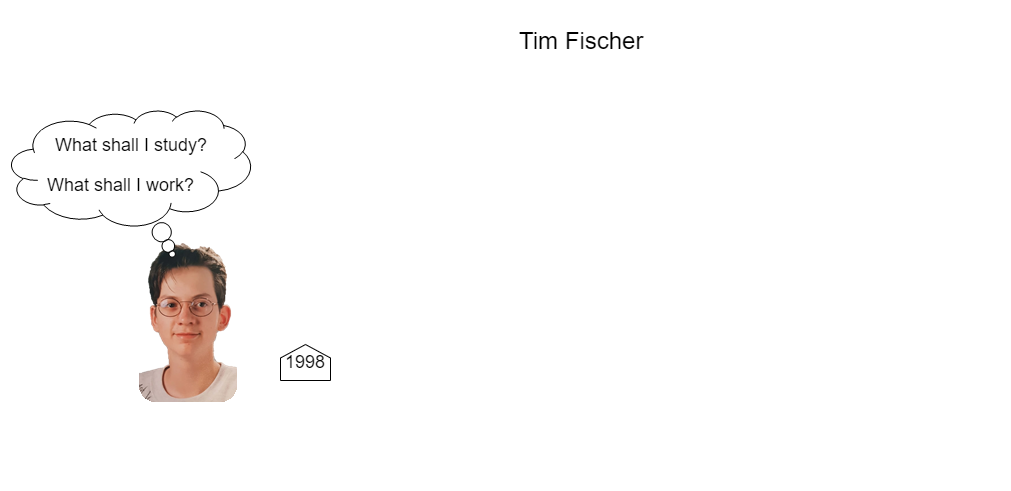
My Resume
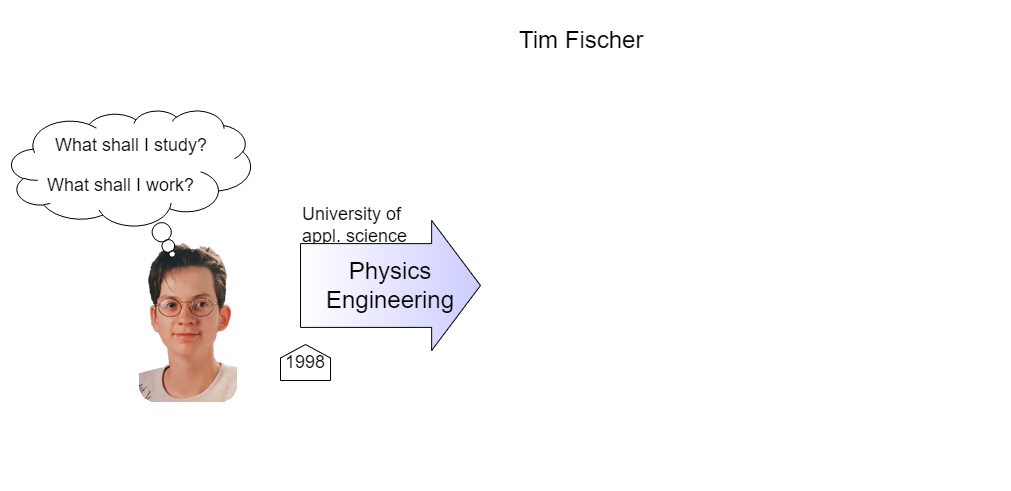
My Resume
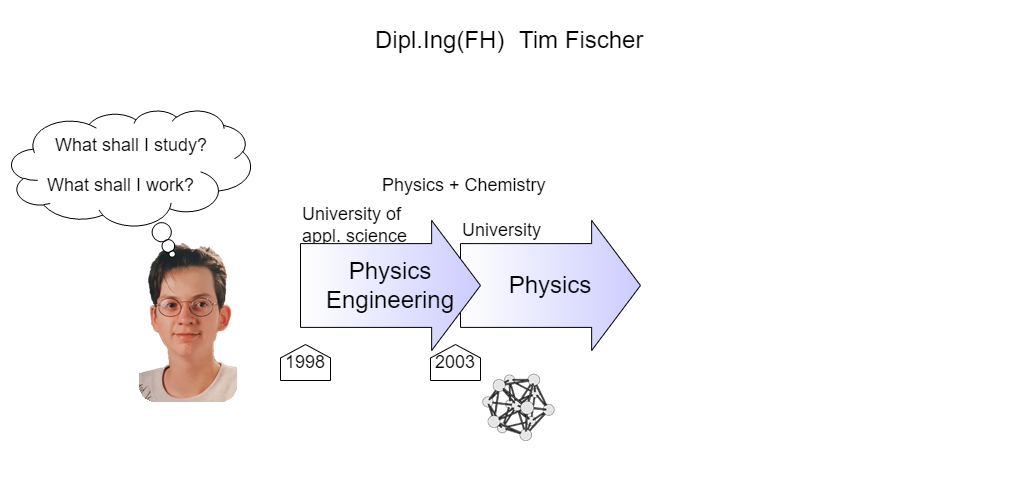
My Resume
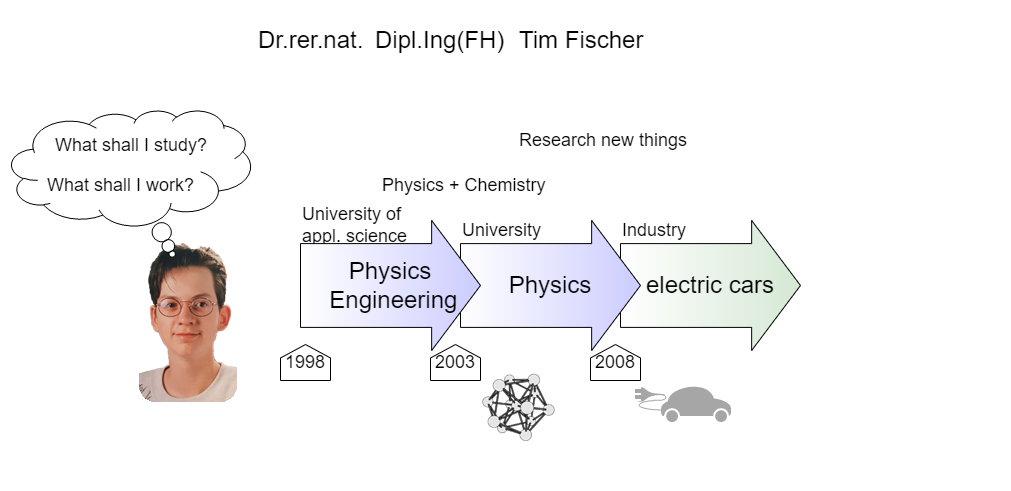
My Resume
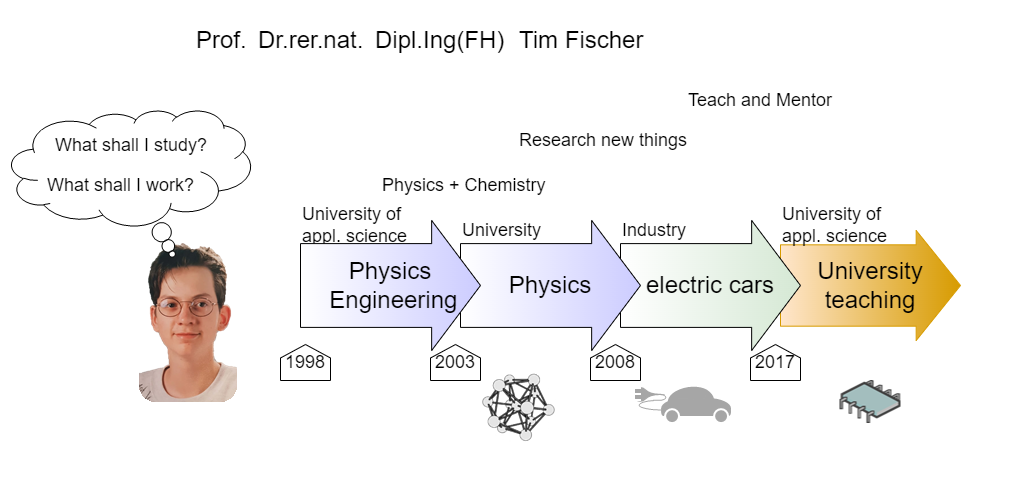
my subjects
- Electrical Engineering and Electronics I/II
- Electronics Laboratory
combined with Elektronik Labor - Microcontroller Technology
combined with Microcontrollertechnik - Electronic Systems
combined with Elektronische Systeme
further connections
- Projects Studies (Laborarbeit)
- Student Research Project for Bachelor
(Bachelor-Seminararbeit) - Bachelor-Thesis
- Student Research Project for Master
(Master Seminararbeiten) - Master Thesis
- Promotions-Thesis
0.0 You
A glance around
Point of Origin
0.1 What does your future look like?
Outlook

Overview of the Lectures (MR)
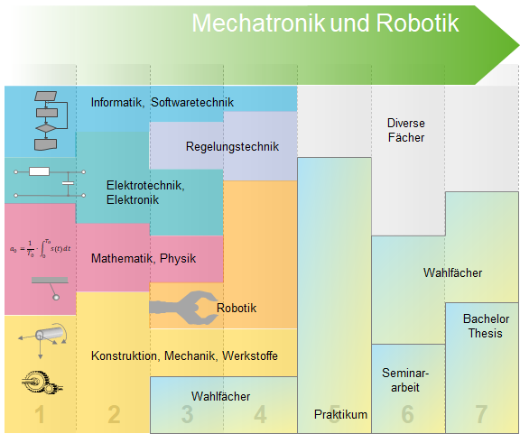
Overview of the Lectures (MR)
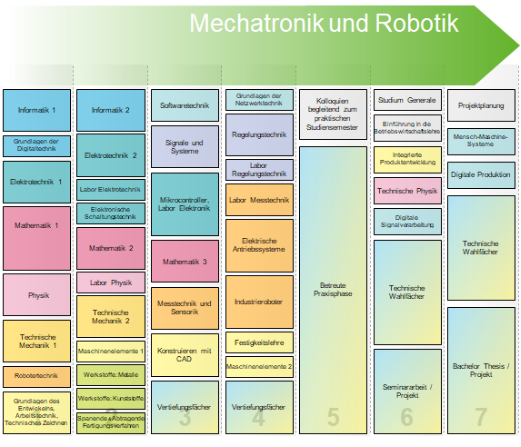
0.2 What should you bring with you?
General
- Ability to engage with abstract issues
- Motivation to learn not only during lectures but also lecture-accompanying
- The secret of „to be able“ lies in „to want“
Mathematics/Physics
- Understanding of physical problems
- Vectors
- Linear systems of equations/matrices
- Differential and integral calculus
- complex numbers
0.3 Sources for "Aftermath"
| V Hacker, et al | Electrical Engineering - Fundamentals $\substack{\tiny{\begin{align} & \text{A great, compact textbook covering about the same range as this course.} & \\ & \text{(Use University VPN to get the textbook) } & \end{align} }}$ |
| F T Ulaby, et al | Circuit Analysis and Design $\substack{\tiny{\begin{align} & \text{is a beautifully written and illustrated textbook with the same range of topics like this course.} & \\ & \text{(It is also free to download and used in many US universities.) } & \end{align} }}$ |
| $\quad \quad \quad \quad \quad \quad \quad$ | Online Simulator by Falstad |
| MEXLE-Wiki |
0.4 Scared by the topics in the first week?
- Use the Maths Learning Centre (further down the link).
- Try to do as many exercises as possible
- Try to stick with it and study and read in a timely manner. The semester picks up quickly…
- Form study groups / join study groups.
BUT: first try the exercise yourself and get creative, then ask fellow students!
0.5 Further information on EE1
Tutorials
- 1 Tutor (starting from November)
- Discord / Whatsapp / or similar
Written exam EE1
- Time: 90 minutes
- allowed aids in the exam:
- scientific, non-programmable calculator
- 1 double-sided sheet DIN-A4 handwritten formulary
(or 2 one-sided sheets)
- Note: A legible and comprehensible calculation process must be available for each result.
0.6 Further information on EE2
Written exam EE2
- Time: 90 minutes
- allowed aids in the exam:
- scientific, non-programmable calculator
- 2 double-sided sheets DIN-A4 handwritten formulary
(or 4 one-sided sheets)
- Note: A legible and comprehensible calculation process must be available for each result.

